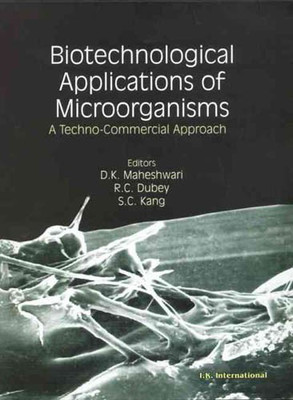Biotechnological Applications of Microorganisms(English, Hardcover, unknown)
Quick Overview
Product Price Comparison
A large number of microbes have been exploited commercially in multifarious areas such as the production of industrially viable products, organic chemicals, pharmaceuticals, recovery of metals, improvement and maintenance of environmental quality, and pest control. This book contains twenty review articles contributed by the subject experts from India, Japan, and South Korea. The articles fall under the three categories: agriculture microbiology, industrial microbiology, and bioremediation. The psychrophiles hold many biological secrets such as biochemical limits to macromolecular stability and the blueprints for constructing stable macromolecules. Lactic acid bacteria, known for their role in fermentation, economics, and systematics, have been addressed in great detail. Biotechnological applications of pectinases in general and, specifically, alkaline pectinases play a significant role In the industry. The production, characteristics and applications of microbial alkaline pectinolytic enzymes have been discussed. Nowadays, semi-synthetic ergot alkaloids are widely used as a potential therapeutic agent. The microbial production of glucans, their functional organisation, and their industrial significance have been systematically reviewed. Bioactive exopolysaccharides production from mushrooms has gained importance in recent years. Production and characterisation of exopolysaccharides and conversion of unsaturated fatty acids into value-added hydroxyl fatty acids by using microorganisms is being used in a wide range of industrial products. Enhancing the microbial production of 1,3-propanidial and its application highlight the commercial exploitation of potential microorganisms. Aldehyde and organic acid production by using oxydases and their derivatives have been advantageous for industries. Some chapters are devoted to the potential entomopathogenic fungi for the management of pests, biotechnological applications of fusaria, microbial metabolite-mediated biocontrol of soil-borne plant pathogens, bioremediation of heavy metals, organochlorine and organophosphate pesticides. Although bio-inoculants are eco-friendly and are being used as well, reviewers have emphasized the constraints in commercial bio-inoculant production and their quality assurance.


